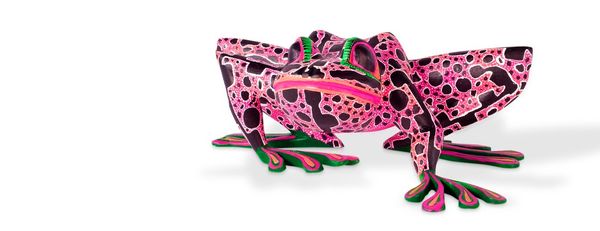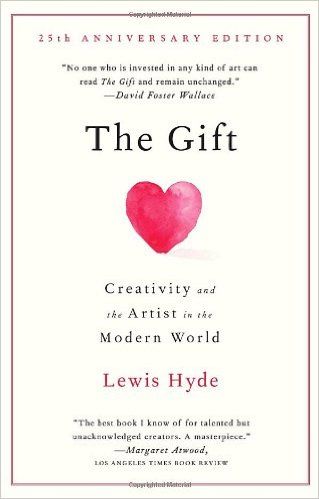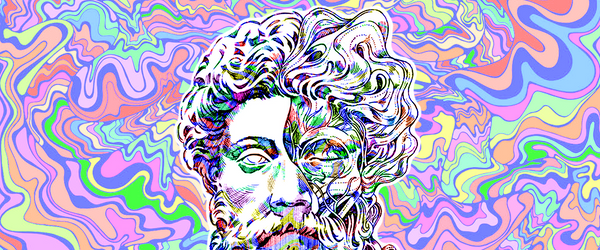Jordan Bates • • 3 min read
‘The Ungrateful Son’: A Poignant Folk Tale Warning Against Callousness & Greed


In his renowned book, The Gift: Creativity and the Artist in the Modern World, Lewis Hyde explores the role of gifts in our personal and spiritual lives.
Hyde examines mythology, folklore, and anthropological studies to argue that gifts have played a significant role in human social organization throughout history. He elucidates the key differences between gifts and commodities, showing how capitalism has eroded many of the gift-based aspects of social groups, rendering modern life colder and more impersonal than human life in times past.
Hyde goes on to argue that art and other transformative creative works — the tangible products of our inner “gifts” — can function as gifts in the modern world, injecting much-needed connection, healing, and relationship into our communities.
Folk Tale: ‘The Ungrateful Son’
In this post, I simply want to share one of the folk tales that Hyde cites in The Gift. Hyde provides little information as to the origins of this tale except to say that “[t]he brothers Grimm found a folk tale they called ‘The Ungrateful Son,'” indicating that this tale probably originated in Europe some centuries ago.
It is a pithy-yet-powerful allegory — a cautionary tale that warns against underestimating the importance of gifts. It suggests — in a rather unsettling way — the necessity of sharing that which we are fortunate enough to possess.
Once a man and his wife were sitting outside the front door with a roast chicken before them which they were going to eat between them. Then the man saw his old father coming along and quickly took the chicken and hid it, for he begrudged him any of it. The old man came, had a drink, and went away.
Now the son was about to put the roast chicken back on the table, but when he reached for it, it had turned into a big toad that jumped in his face and stayed there and didn’t go away again.
And if anybody tried to take it away, it would give them a poisonous look, as if about to jump in their faces, so that no one dared touch it. And the ungrateful son had to feed the toad every day, otherwise it would eat part of his face. And thus he went ceaselessly hither and yon about in the world.
Interpretation
There’s a kind of intrinsic authority to old folk tales and myths that I find compelling. One gets the sense that a certain “old wisdom,” encoded in a parable centuries prior, was potent enough to be passed down through generations. The agedness of the story makes the message feel especially powerful. For me, this is certainly the case with ‘The Ungrateful Son.’
I want you to come to your own conclusions about the tale’s meaning, but I’ll offer a brief summary of my interpretation.
I feel the story is a straightforward, almost bluntly obvious warning that hoarding resources is a kind of karmic curse — i.e. that refusing to share what one has will haunt one’s life in some way. I see this as applying not only to physical resources, but to inner resources as well. The implication, then, is that we ought to be generous with our physical goods as well as our attention, patience, kindness, and talent.
I think this story summons some additional authority as a result of the fact that it is one in a long lineage of stories that have communicated the same basic idea. One thinks of the Bible — a book bursting with parables about the sacredness of generosity and the reprehensibility of hoarding (The Feeding of the 4,000, anyone?)
From a Taoist perspective, the toad tale can be seen as an illustration of the idea that anti-generosity is contrary to nature, the flow of things, the Tao. Nature, after all, gives endlessly, nourishing all living things in the universe with its infinite bounty, and yet never loses anything. Its generosity seems essential to its magic.
Thus, if we are to align with the Tao — to align ourselves with the ways of nature, as Taoists suggest we should — we ought to give and share what we have freely, without worry or concern for repayment.
Ultimately, in practice, our modern world is quite complex, and I don’t think we should take this story to suggest that the only proper course of action is to become a Christ-like figure who gives away everything (s)he owns.
However, I see this as a poignant warning — particularly for those of us living in affluent countries amidst cultures of extravagance and excess. The story seems to urge: Be more generous than you think you can be.
The alternative — hoarding mass quantities of stuff, filling huge homes with trinkets we’ll barely ever use or touch, saving thousands or millions of dollars without ever donating a dime — might not result in an eternal toad-face, but in an arguably worse condition: an eternally cold heart.
What do you think of this tale? Let us know in the comments.

Jordan Bates
Jordan Bates is a lover of God, father, leadership coach, heart healer, writer, artist, and long-time co-creator of HighExistence. — www.jordanbates.life


![Seneca’s Groundless Fears: 11 Stoic Principles for Overcoming Panic [Video]](/content/images/size/w600/wp-content/uploads/2020/04/seneca.png)







